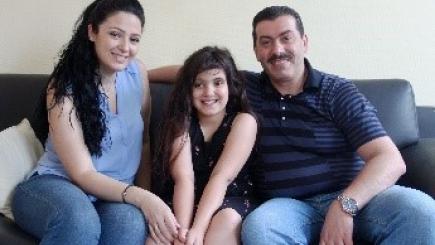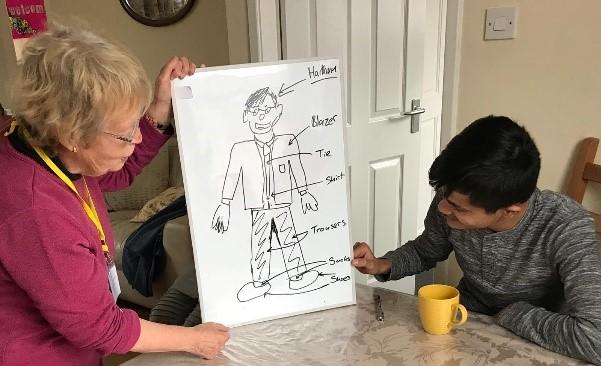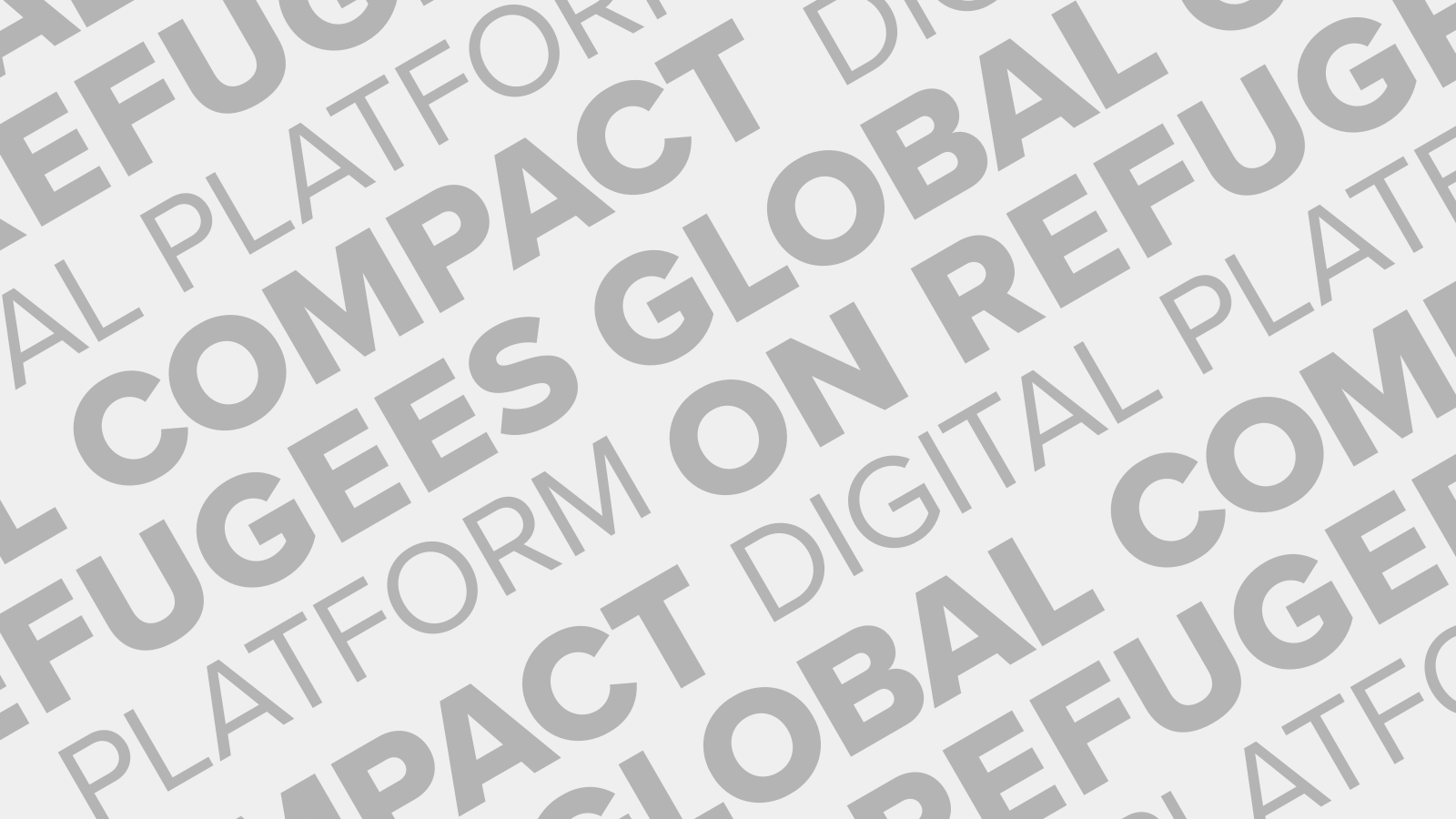
© Caritas Belgium
The project in brief
Implemented by
Caritas Europa
Country
Germany, Ireland, France, Italy, Belgium, UK, Spain
Duration
The Working group on community sponsorship met for the first time in 2018, as part of the ICMC-led SHARE Integration project, co-financed by the European Union under the Asylum, Migration and Integration Fund (AMIF). The Share Integration project is a follow up project of SHARE Network which was first established in 2012 by ICMC Europe.
The Share Integration project will end at the end of 2019, but we hope that the WG on community sponsorship will be able to continue to exchange ideas and practices through other projects. The community sponsorship projects presented in the publication are still ongoing, and are set to continue in most of the countries covered.
Description
The joint Caritas Europa – ICMC Europe publication “Fostering community sponsorships across Europe”, was produced in the framework of the ICMC-led SHARE Integration Project in cooperation with the Community Sponsorship Working Group, which includes Caritas Europa, ICMC Europe, Consorzio Communitas/Caritas Italiana, Caritas Salford, Caritas International (Caritas Belgium) and Secours Catholique Caritas France (SCCF).
Some of the good practices identified and analysed throughout this publication touch upon programmes involving UNHCR, interior and foreign affairs ministries of receiving countries, faith-based organisations, partners working on the ground in countries of first asylum (e.g. Ethiopia, Lebanon, Turkey), etc.
Project aims
The publication analyses the implementation of three main approaches to community sponsorship in Europe since 2013. These include: sponsorships linked to extended family reunification in Germany, Ireland and France; Humanitarian Corridors in Italy, France, and Belgium relying on the issuance of a humanitarian visa; and resettlement-based community sponsorships in the UK, Germany and Ireland, which rely on referrals from UNHCR. Four case studies of Eritrean and Syrian families who arrived in small towns and municipalities in Belgium, France, Italy and the UK provide testimony as to how community sponsorships can transform people’s lives.
The publication shows how the involvement of local communities and volunteers in supporting sponsored refugees in their integration path has the power to yield better integration outcomes and to create more tolerant and inclusive societies, fostering a more positive narrative on migration. In addition, the publication shows how well designed community sponsorships can contribute to the Global Compact on Refugees and the increased admission of refugees in Europe.
Resources used
In the case of humanitarian corridors in Italy, France and Belgium, the signature of MoU or agreement between faith-based organisations and the ministry of interior and foreign affairs allowed for the issuance of a certain number of humanitarian visas. In Italy, the delivery of humanitarian visas was made possible by using article 25 of the EU visa code.
In other types of programmes based on resettlement, UNHCR played a central role, together with the asylum agencies and the relevant ministries of the states concerned.
Last but not least, organisations experienced in supporting asylum seekers and refugees, trained and provided support and accompaniment to the local groups of volunteers that welcome the sponsored refugees.

© Caritas Italy
Partners
- Caritas Europa
- ICMC Europe
- Consorzio Communitas/Caritas Italiana
- Caritas Salford
- Caritas International (Caritas Belgium)
- Secours Catholique Caritas France (SCCF)
Challenges and how they were overcome
Challenges
Some challenges relate to the high financial threshold needed to reach to be able to become sponsors and the difficulty to find affordable accommodation due to the housing crisis in some countries (e.g. UK, Ireland).
Other challenges related to the need to thoroughly prepare arriving refugees and the welcoming groups, to ensure that expectations are managed for both groups, and that potential conflict of difficulties emerging from the encounter of different social groups and religions can be adequately dealt with through dialogue.
On a more theoretical level, an important challenge relates to the desire to ensure that community sponsorship programmes lead to a real increase of protection places in Europe, in addition to state-led traditional resettlement programmes; and are not instrumentalised to shift states’ responsibilities in the area of asylum to volunteers and local organisations.
How they were overcome
Some challenges related to the financial and accommodation requirements needed to be able to sponsor refugees were overcome by using the existing social networks in the welcoming communities to organise fundraising events or to find free accommodation available. Developing local partnerships through multi-stakeholder engagement was also critical to create a spill over effect in terms of the numbers of people available to support in one way or another the sponsored refugees. (E.g. neighbours, schools, universities, diaspora, local organisations, trade unions, small businesses, etc.)
Another challenge related to the post-arrival intercultural engagement. In order to facilitate interactions between refugee families and host communities in a positive way, most sponsorship programmes have worked with cultural mediators. Trained cultural mediators facilitate improved understanding and help to overcome misunderstandings or tensions. In addition, intercultural or interfaith dialogue, mediation and training have proven to be very useful. Gatherings of multiple sponsoring groups and newly arrived refugees, together with cultural mediators, can help to bridge divides or overcome misunderstandings, and can create a safer space where refugees may feel more comfortable raising concerns or complaints.
Results of the Good Practice
- Facilitated settlement and integration path, thanks to tailor-made support from volunteers.
- Access to an existing social network, which can facilitate language learning and access to employment opportunities.
- By facilitating personal encounter between refugees and the host society, sponsorship programmes contribute to creating more welcoming, tolerant and cohesive societies; including in small rural and local communities, not necessarily used to welcome foreigners.
- Ultimately, these positive elements can lead to states offering more admission places and investing more in the area of asylum.
Main activities of the Good Practice
Objective 1: Ease the pressures on host countries
Resettlement or use of humanitarian visas to travel safely to Europe from a first country of asylum such as Lebanon, Ethiopia or Turkey, contribute to easing the pressure on the first countries of asylum.
Objective 3: Expand access to third-country solutions
In addition to resettlement, community sponsorship schemes increase the number of admission places available in Europe. These further contribute to expanding integration capacity in new cities and towns in the receiving countries, which can lead to an increased commitment from the states’ authorities to provide more safe and legal places of stay.
Next steps
The Share Integration project will end at the end of 2019, but projects presented in the publication are still ongoing in most countries.

© Caritas England and Wales




